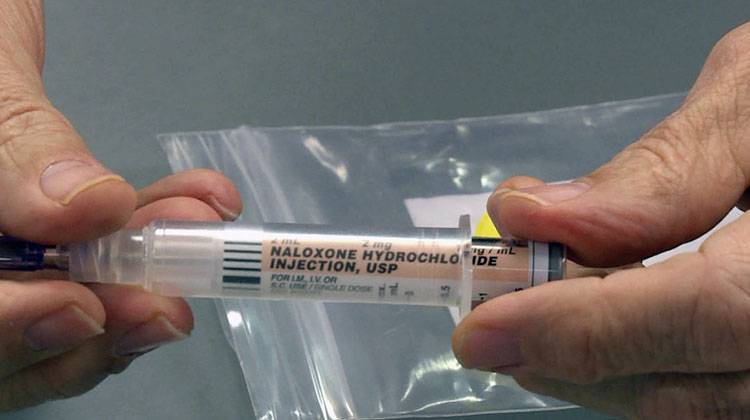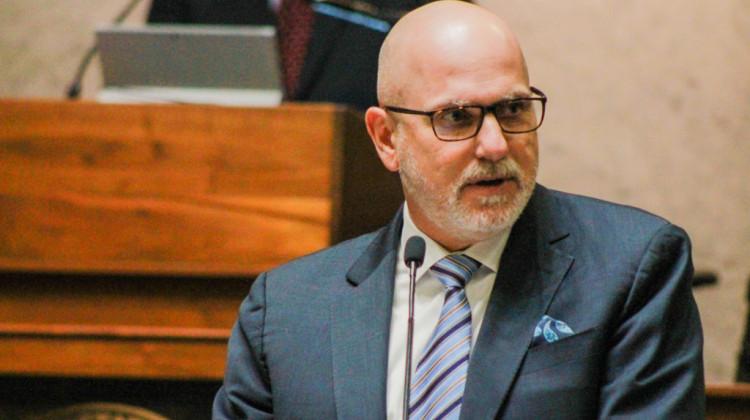
The Attorney General's office is using grants to help equip Indiana police departments with naloxone.
James VavrekBLOOMINGTON -- Police at all of Indiana University’s campuses will soon be armed with the opioid overdose antidote naloxone.
The Indiana Attorney General’s office is using grant money to equip police departments throughout the state with naloxone, including officers at IU.
Departments at IUPUI and the Richmond campus already use the drug, which can revive people who overdosed on opioids. In the past, officers had to wait for an ambulance to arrive to help someone who overdosed.
“On the scenes that I’ve been on the person has appeared to be dead, not breathing and then the ambulance crew has arrived in most of those cases and been able to spray something in the nostrils or give them an injection and it just seems like they come right to,” says Andy Stephenson, Captain of Operations at IUPD Bloomington.
Lt. David Rhodes says opioid overdoses aren’t a large problem on the campuses, but he expects it to become a growing issue.
“Most people anymore that have problems with the opioids, which are what you’re going to be addicted to, can be anybody,” he says. “It could have been somebody that suffered a knee injury and were taking a pain killer and the next thing they know they’re hooked on something.”
Officers at all IU campuses should have naloxone kits by the end of the week.
 DONATE
DONATE






 Support WFYI. We can't do it without you.
Support WFYI. We can't do it without you.